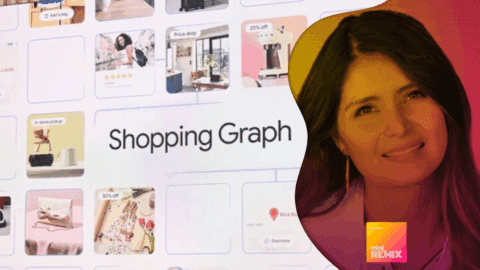Just a few years ago, Amazon only sold books, Apple sold computers, eBay connected buyers and sellers of used goods, Facebook didn’t exist, and Google was a search engine. Today these five Tech Titans ― with a combined market cap of more than one trillion dollars as of mid-August 2012 (see chart below) ― are competing head-to-head for the same customers and, in the process, are fueling thousands of new companies. As they continue to reshape the retail landscape, it’s no longer business as usual even for the industry’s most influential merchants.
Cognizant of this major inflection point, solution providers are developing powerful technology suites that can help all types of merchants compete more effectively in this new era of the tech titans.
A webinar conducted during August 2012, titled: Retailing in the Tech Titans Era: What’s Next from Amazon, Apple, eBay, Facebook, and Google,explored the influence of today’s tech titans on the retail arena. The session ― conducted by Lori Schafer, Executive Adviser for SAS Institute’s Retail Practice, and hosted by SkuLoop, a retail systems supplier ― looked at the growth strategies within the five companies, and how retailers can and are competing.
“The tech titans are in an all-out war with each other, and the fallout will affect society in ways we haven’t yet imagined,” Shafer stated. “These organizations don’t recognize borders; they feel no qualms about marching beyond the walls of tech into retailing, advertising, publishing, movies, television, communications, financial services, and eventually into health care and insurance.”
Current Tech Titan Developments
During the webinar, Shafer discussed the current developments taking place at the five companies and the resulting impact on retailing.
She pointed to eBay, which has added a variety of outlet-type stores for hundreds of major retailers, testing same-day delivery, and partnering with retailers to provide technologies to enable both small and large retailers a cross-channel shopping experience. While Facebook is the giant social network, Google is entering every type of social media. Retailers are testing Google Wallet and eBay’s PayPal mobile payment systems, and Google has introduced new localization efforts: Google Shopping is incorporating inventory feeds from major retailers in every category to help drive local in-store traffic.
Shafer also mentioned rumors that Apple is in talks to acquire The Fancy, a Pinterest competitor, she said, “which could lead to an entire revolution in e-commerce and how products are purchased via mobile.”
Search: Amazon Surpasses Google
In addition, Amazon has taken aim at the search business: “According to Forrester Research and ComScore, far more people now use Amazon over Google to search products,” noted Shafer, emphasizing that “products are where the advertising dollars are spent.”
On the Amazon MYHABIT fashion site, 3-D models twirl and show items at every angle, which has the potential to transform the way consumers expect to see fashion online, said Shafer. And Amazon won’t stop at retail: the company recently announced AmazonSupply.com, through which it meets commercial business needs. The company is ahead of the curve in creating a cloud data service and is pursuing all aspects of digital media as it acquires exclusive rights to books, movies, and TV shows. “In 2010, Amazon was the nation’s 19th largest retailer, jumped to 13th by 2011, and will crack the top 10 by this year’s end,” Shafer said. “Financial analysts expect Amazon to reach $100 billion in annual revenue by 2015, faster than any company ever. According to ChannelAdvisor, by 2017, Amazon will reach $200 billion in sales. Current growth projections show Amazon surpassing Walmart in sales by 2024.”
Referring to the slide shown below, Shafer said the five tech titans generate so much money that they can spend freely on innovation and new ventures in new industries. “They have thousands of research projects ongoing at one time, unlike a retailer who just cannot afford that level of innovation.”. Retailers need to pay close attention, and can “improve their own growth trajectories by focusing on leveraging these companies rather than fighting them.”

A Positive Influence On Other Retailers
While the tech titans continue to have a major impact on the retail industry in their own rite, a number of other retailers successfully have adopted titan-type thinking into their businesses.“For the first time ever in history, leading retailers including Walmart, Nordstrom, Macy’s, Neiman Marcus, and even Tesco have begun either investments and/or an acquisition spree in new digital technology companies to give them a better position in this new world,” Shafer said. “Even more interesting is the number of retailers putting chief strategy officers out in Silicon Valley. Some are doing nothing but looking for potential technology companies to acquire so they can not only get the technology, but more importantly, the talent that often times retailers are not going to be able to build on their own.”
As far as the smaller merchants, Shafer noted that 10 years ago people said these merchants didn’t have a chance compared to the big-box retailers, but today the titans are a funnel for smaller retailers to enter the market and grow. As a result, smaller retailers have opportunities they never had before.
In addition to the positive influences tech titans have within the new retail landscape, Shafer said many brilliant entrepreneurs are coming up with exciting companies that are helping retailers with systems and technologies that help boost sales traffic and profitability in this new era.
Be A Frenemy
“I advise all retail companies to follow the titans very closely,” said Shafer. “Be guarded with them on one hand, but look to partner with them on the other.” She noted that the tech titans follow a “frenemy” approach: They are each other’s biggest enemies and competitors, but know when to collaborate and even do business with one another where it makes sense.
Shafer pointed to the group of retailers, including Walmart, Target, and those ranging from big-box electronics to pharmacy to even vending companies ― about two dozen, representing an annual total revenue of about $1.4 trillion ― who are working together on their own mobile wallet. She also noted partnerships between Sephora and Apple, Macy’s and Belk, Home Depot and PayPal, brands and eBay, and others. Shafer added that the industry needs to watch the results of the five retail partners testing Google Wallet: American Eagle, Macy’s, Subway, The Container Store, and Walgreens.
While the tech titans continue to reshape retail for the foreseeable future, “at least until the next Silicon Valley garage kids unseat them,” mused Shafer, retailers need to be willing to go out and try new things versus waiting for them to be perfect. “The titans always introduce new concepts into the marketplace as beta, and guess what? Consumers don’t seem to mind at all.”












